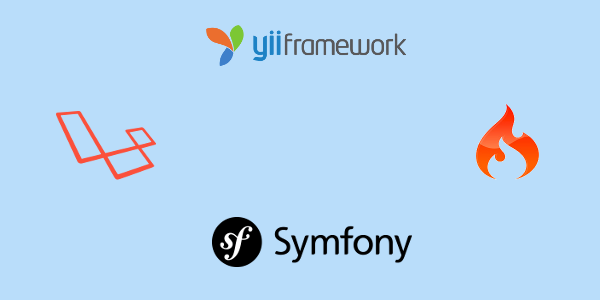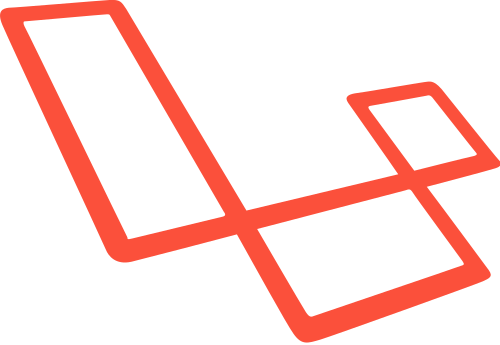Author: Paige Griffin
Viewers: 3,405
Last month viewers: 3
Categories: PHP Tutorials, PHP opinions
Read this article to learn more about some of the most popular PHP frameworks and relevant features that they provide to benefit your PHP applications, so you can have useful criteria to evaluate which one is the best for you.

How to Evaluate PHP Frameworks?
As we all know, PHP is accepted worldwide as one of the best scripting languages for building Web sites. Even giant players in the market like Facebook and all those that use WordPress in their sites use PHP for their core internal systems. Since its inception in 1994, PHP has been known for offering a decent and an interactive user experience.
As far as nearly 79 percent of websites are built using PHP. But, there is a question that many PHP developers ask which is: what PHP framework would suit your requirements well?
With a plethora of choices to choose from, here is a complete guide on how to make the best pick.
The PHP frameworks discussed below would be measured on the basis of the following parameters.
Nine Vital Questions to Ask
-
What is the specific goal of the Web site?
-
What hosting environment do you prefer?
-
What is the expertise level of you and your developer colleagues?
-
Is the framework you are using updated frequently?
-
How popular is the framework in question?
-
Does the framework support robust security features?
-
Is the framework documentation available?
-
Are there valid licenses for the available frameworks?
-
Is there an option to draft test cases?
Types of Frameworks
Before starting off, you would need a fair idea about the different types of PHP frameworks. Here you go:
-
The Glue Framework: It supports independent modules, thus offers better flexibility in turn. Apt for high-end developers, they get the ease to program the Web site as they please.
-
The Full Stack Framework: The framework is configuration-oriented and fails in providing good flexibility. It makes for a good choice for beginners who can practice writing code and experiment the framework features.
-
The Mixed Framework: It is a blend of the glue and the full stack framework. The best part is the availability of an option to choose from the two.
Which PHP Framework to Choose from the Top Four?
There are many PHP frameworks out there. Here follows an overview of the four that I consider to be the most relevant these days.
1. Laravel
The ease of understanding is the prime reason behind the high popularity of Laravel. Moreover, it can also reuse existing components of other frameworks. Programmers love the speed of Web development offered by Laravel.

Quick Facts about Laravel
-
Compatible with databases such as SQLite, MySQL, PostgreSQL, MongoDB, Microsoft BI, Redis
-
Enjoys a strong community and updated forums
-
Availability of over 9000 packages
-
Supports object Relationship Mapping
-
Supports aggressive unit testing
-
Includes easy-to-read migration
Parameters Evaluated about Laravel
|
Criteria |
Laravel's Capabilities |
|
Application Goal |
|
|
Hosting Environment |
|
|
Expertise Level of the Team |
Ready to use for beginners |
|
Bug Fixtures & Updates |
Excellent |
|
Security |
Good |
|
Documentation |
Good |
|
License |
MIT |
|
Testing |
Good |
|
Community |
Good |
2. Symfony
This framework came into existence in 2005. The major success of Symfony has garnered it the 3rd rank in popularity after Laravel and CodeIgniter.
Symfony has come a long way down and has proved to be a reliable and feature-rich framework.

Quick Facts About Symfony
-
Compatible with databases such as NoSQL, MongoDB, Microsoft BI, Oracle, PostgreSQL, Jackrabbit, MySQL, Couch DB, GemFire
-
It is a commercially supported framework introduced by SensioLabs
-
Symfony is inspired by the Spring Framework used for the Java platform
-
Offers simplified testing
-
Surprisingly, 30 percent of Laravel code is Symfony
-
As large as 2830 extensions offered
Parameters Evaluated About Symfony
|
Criteria |
Symfony's Capabilities |
|
Application Goal |
|
|
Hosting Environment |
|
|
Expertise Level of the Team |
Serious about coding standards and patterns |
|
Bug Fixtures & Updates |
Excellent |
|
Security |
Good |
|
Documentation |
Excellent |
|
License |
MIT |
|
Testing |
Excellent |
|
Community |
Good |
3. CodeIgniter
When it comes to establishing a dynamic Web site with PHP, developers prefer CodeIgniter. To add to the list of features, CodeIgniter is based on MVC (Model-View-Controller) architecture.

Quick Facts about CodeIgniter
Compatible with databases such as Microsoft SQL, MySQL, MongoDB, Oracle, IBM DB2, CUBRID, Microsoft BI, and PostgreSQL
-
In the words of Rasmus Lerdorf, CodeIgniter is popular “because it is faster, lighter, and the least like a framework.”
-
Compatible with PHP 4 and PHP 5
-
Demands minimal server requirements
-
Adept at creating SEO friendly URLs
-
Ease of undertaking caching operations
Parameters Evaluated about CodeIgniter
|
Criteria |
CodeIgniter's Capabilities |
|
Application Goal |
|
|
Hosting Environment |
|
|
Expertise Level of the Team |
Good choice for beginners |
|
Bug Fixtures & Updates |
OK |
|
Security |
Good |
|
Documentation |
Excellent |
|
License |
MIT |
|
Testing |
Excellent |
|
Community |
Good |
4. Yii
This framework makes for a perfect pick for PHP web development. The secret behind the success of Yii points at it getting the status of a “universal web programming framework.” Moreover, Yii is a component-based framework which, in turn, is fast, secure, and flexible.

Quick Facts about YII
Compatible with databases such as Oracle, PostgreSQL, Microsoft Bi, SQLite, MongoDB, MySQL
-
Yii denotes “simple and evolutionary,” and is articulated as “Yee or Ji” in Chinese.
-
Excellent cache collection
-
Inbuilt Ajax support
-
Simple and elegant code
-
Comparatively shorter development time
Parameters Evaluated about Yii
|
Criteria |
Yii's Capability |
|
Application Goal |
|
|
Hosting Environment |
|
|
Expertise Level of the Team |
Serious about coding standards and patterns |
|
Bug Fixtures & Updates |
OK |
|
Security |
OK |
|
Documentation |
OK |
|
License |
BSD |
|
Testing |
Good |
|
Community |
Large |
Conclusions
This is it! PHP frameworks have been ever popular for simplifying the Web development process while doing away with the hassles.
After a thorough analysis, it can be concluded that every PHP framework has its own pros and cons. If you are in a dilemma as to what framework to choose, do analyze the project requirements.
This can help you get halfway through the selection process. The other half can be achieved by consulting the best of PHP experts who have reputation and experience in Web development.
The key is not to compromise on quality, instead add value to your business. So, choose wisely!
Author Bio
Paige Griffin is a seasoned Content Writer at Net Solutions, Los Angeles for 7 years with an expertise in blogging, writing creative and technical copy for direct response markets and promotional advertising for B2B and B2C industries.Born and brought up in New York, Paige holds a bachelor's degree in English Literature. She has worked for industries like IT, Product engineering, Lifestyle, Retail, among others. Besides her technical background, she is a poet by heart, who loves to connect with people through a dose of creativity and imagination.
You need to be a registered user or login to post a comment
Login Immediately with your account on:
Comments:
1. Lightweight - Stefano Kocka (2019-06-12 19:57)
.... - 0 replies
Read the whole comment and replies


